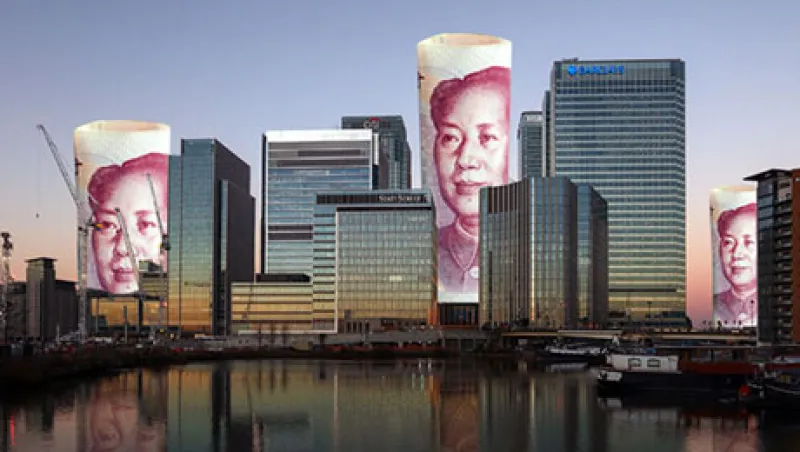Offshore mergers and acquisitions by Chinese corporate investors reached a record level in 2016, with 777 announced deals valued at more than $225 billion. That puts Chinese investors second only to their American counterparts, who acquired $268.8 billion worth of offshore corporate assets last year, according to research firm Dealogic. What’s more, Chinese investors acquired more than $38 billion in offshore real estate last year, up 49 percent from a year earlier, according property valuation firm DTZ/Cushman & Wakefield. But China’s rise as a global deal maker may be short-lived.
That’s because Chinese regulators are in the process of clamping down on capital flight out of the country. Since November, regulators have been imposing restrictions, including banning companies from doing deals of more than $1 billion in sectors unrelated to their core business, limiting real estate acquisitions to deals of under $1 billion, and imposing an outright ban on any deal worth more than $10 billion.
For a long time Chinese officials encouraged offshore investments, but regulators in Beijing have recently become alarmed at the effect that the rapid pace of capital outflows have had on the nation’s foreign exchange reserves, which have fallen almost $1 trillion since early 2014 through December 2016, to $3.01 trillion. December marked the sixth straight month of declines.
The reason for the crackdown ultimately comes down to rising concern among officials about economic stability, says Victor Shih, an associate professor of political economyat the School of Global Policy and Strategy at the University of California, San Diego.
“The authorities are afraid that rapid depletion of the foreign exchange reserves will force the central bank to float the yuan, which may introduce a great deal of uncertainty, financially and politically,” says Shih, who is also a principal with China Query, a macro economic consultancy focused on China. “Thus, China is trying to delay the float as much as possible. Their main concern seems to be a secondary panic about the currency or even the financial system after the float.”
Demand by Chinese investors for dollars has forced the yuan to depreciate, falling from 6.44 to the dollar last April to the current 6.88 level. Hu Yifan, chief investment officer for UBS Wealth Management in Hong Kong, believes authorities will aim to keep the nation’s foreign exchange reserves above $2.7 trillion in 2017. Their bottom line, says Hu, is to not allow reserves to dip beneath $2.5 trillion.
Andrew Collier, managing director for Hong Kong–based Orient Capital Research, says regulators are cracking down because they also see signs of capital flight, which is driven by declining economic growth, as well as a possible peak in the property market in China and President Xi Jinping’s continuing anticorruption campaign. Collier adds that China’s wealth is concentrated in the hands of roughly 2 percent of the population, many of them businesspeople, retired bureaucrats, and powerful politicians (or their relatives) who may illegally obtain wealth by seeking bribes in exchange for political favors.
China’s anticorruption campaign and the crackdown on cross-border capital flows will only intensify in the months ahead, says Shaun Wu, a Hong Kong–based partner with law firm Kobre & Kim. Wu cites the fact that the central government is in the process of setting up the National Supervisory Commission, which will expand the campaign beyond just members of Communist Party.
Up until now, the campaign has been led by the party’s Central Commission for Discipline Inspection, which focused efforts to root out corruption among members of the party who work in government. Not all Chinese bureaucrats are members of the party, says Wu, and the new commission will expand the crackdown to even state-owned enterprises. “This new commission can even investigate multinationals in their dealings with state-owned enterprises in China,” says Wu.
China’s role as a globe-trotting deal maker is far from over, but there is no question that officials in Beijing want to manage the flow of outbound capital, slow the depreciation of the currency, and make sure only legitimate deal makers get access to foreign exchange. That may well mean that the huge surge in Chinese deal making may have peaked and will slow in 2017.






